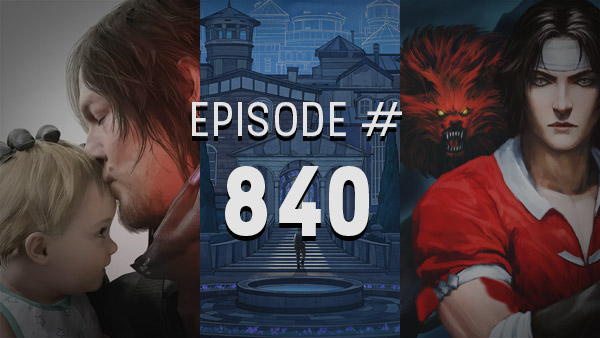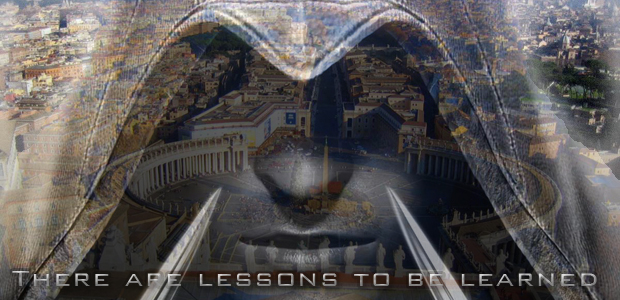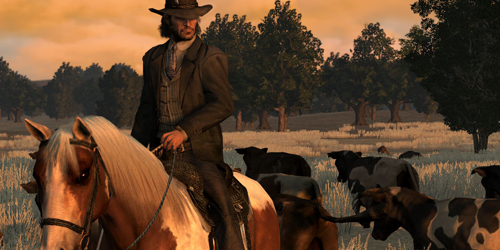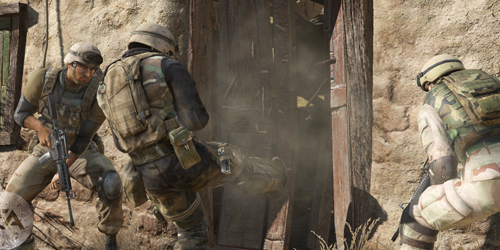Your login information returned multiple users. Please select the user you would like to log in as and re-type in your password.
I had an interesting experience the other day while taking a seemingly boring venture to the Bob Bullock Texas History Museum. All through High School and college, history was my least favorite subject. It's not that I don't find it interesting but the way the lessons were presented to me were not engaging enough to warrant my attention. It was while I was taking a tour of the history museum that I realized how much I actually appreciated games like Assassin's Creed and Red Dead Redemption. Games that take slightly different approach to setting and presentation than most games. By adding an element of real world history, I found myself thinking a lot more about what these games can do me on an intellectual level. Not to say that these games necessarily teach real world truths, but they planted a seed in my brain that wouldn't otherwise be there. Allow me to explain.
I had visited plenty of history museums in my life only to be bored out of my mind and ready to bolt but this day was different. From the moment I started browsing the exhibits and reading the placards, I was shocked by just how interested I was. It wasn't until I let my mind wander to gaming that I realized why. Red Dead Redemption had given me an appreciation for the time period in the same way that a good movie might make you think about a particular time period or historical figure. I found myself genuinely interested in learning about the annexation of Texas and the battle of San Jacinto. My mind started to wander and I began to dream about the inevitable sequel to Red Dead and excited about the directions they could go. There is so much rich history in Texas, Mexico, and the south in general that would make a wonderful backdrop for a game. There are so many issues like slavery, women's suffrage, and so many other topics that go beyond that narrow time period and location. What I think makes them so interesting is the interactive element of gaming that gives the player a hands on experience and encourages a certain level of personal involvement that other mediums simply can't offer.
The obvious problem with this kind of thing is that these are works of fiction that are often only loosely based on real events. While Red Dead Redemption was an incredibly realistic, fully realized world based on a real time period, it was definitely not as accurate as it would have you believe. Characters were fictitious and events were created to promote the flow of gameplay and ensure that players were having fun. While I recognize this, I was blown away by the effect it had on my interests. My enthusiasm about one game opened my mind to learning about an entire period of time and the events that shaped this country. If a video game can do that for me, I think it can do that for a lot of people. To say that video games don't have the potential for learning or capacity to have a positive influence on people is a gross over generalization.
I thought a lot about this was able to find other examples of this as a result of playing other games. It wasn't until I played games like Assassin's Creed that I began to notice my interest in world travel and religious history grow. This series is literally a window into time periods and parts of the world, presented in the context of a clever work of science fiction. Despite the over the top, Matrix-esque spin, these games seem intent on accurately depicting real world events. Since playing Assassin's Creed 2 last year, I immediately perk up when Italy is depicted or mentioned. I find myself wanting to learn more about real events as a means of expanding my experience in the games. Think about that. Real world history can now effectively accentuate your experience in a video game and if done right, can even make the game better.
I am finding it easier and easier to enjoy games based on real events more so than games entirely based in fiction. This has slowly molded into it's own genre in recent years and there are plenty of examples. Games like Call of Duty that do their best to make a statement about the way the world works and the effects that something as ugly as war can have. A game like Medal of Honor (2010) seems poised to put people behind the eyes of a soldier in a real world situation that is still going on and that seems like a big deal to me. Of course, this kind of material is delicate and should be handled with the utmost care but if executed properly, games like this can really teach players something. Whether it be about a time period, a particular event in world history, or simply a lesson about the way the real world operates, there are lessons to be learned from Video Games and I think it is time somebody acknowledged that.







Comments
14 years, 9 months ago
Games involving an factual historical backdrop are very interesting to play, like you said Assassins Creed was fascinating, learning facts, dates even though they were not directly connected to the plotline. I think with medal of honour it will be telling us a true story of war much like world war games rather than say modern warfare and bad company were a fictional war is created to create a game, its nice to feel like you learned SOMETHING playing a game rather than just learning the storyline.
Im excited to see where else Assassins creed can go, i mean yeah i know whats in brotherhood but i would personally love to see it go to the likes of Egypt or the east, china or japan etc, they have some very interesting history and could be good in game form.
14 years, 9 months ago
I totally know what you mean, I just started my History 126 (World Civ) class at college, and started to realize just how much my interest of the different civilizations is influenced by how often they apear in video games. Persia, for example, is not extreamly interesting to me, until I considered that that is where Prince of Persia takes place. (Shocking, I know...)
-Macklin
14 years, 9 months ago
I never really thought about it, but you are right. For me, history was one of my worst subject mainly due to how boring the method of teaching was. However, I've always been interested in WWII, learning what was taught in school and playing games based off of that time. There was somethat about that setting that made me want to know more. It is a shame the market was flooded with WWII era games but the sad thing is, there are still battles and situations not touched on yet.
By far the most interesting part of WWII was learning about Germany and the events after WWI that led to WWII. It really is a shame we will never see a true WWII game from the eyes of the Axis but still, learning about the Axis history was some of the most insane things i've read. Hell, learning about Russia alone is crazy, just how fast they moved in such a short ammount of time.
anyway, back to the main thing, I do feel Videogames have a lot of potential in education. Though maybe not the best method for directly teaching kids things, but like you said, it plants a seed. Later when they are taught that or hear about it, that seed will blossom in a flower of knowledge and curiousity, in search of finding out more about this information, learning more about the era they played in, and being reminded of "Oh, I did that in -this game-. Oh so thats how it happened. that makes a bit more sense"
good read nick.
14 years, 9 months ago
Great article, Nick. And so very true. Now I can only imagine what you learned about Freudian theories while playing the Silent Hill series.
14 years, 9 months ago
It's funny, my reaction to these was almost the reverse of yours. I'm a history nerd, and love to learn about global and U.S. history. For instance, I have always had a major interest in the Knights Templar, even before things like the Da Vinci Code and AC. I read books about them, and by proxy about the Assassins, their Arab counterparts (or at least what the game would want you to call them, their real name being Hashashin(Scholars believed they consumed Hashish before assassinating someone, hence the name) which is the root word for the western word Assassin). When I played the AC I immediately recognized names like Robert De Sable, Al Mualim(aka Rashid ad-Din Sinan), Saladin, William V, Richard the Lionheart, and of course Acre, Masayaf, Damascus, and Jaruselem. It's a great feeling to get when you recognize something from a game thats from the real world.
As for RDR, I actually more enjoyed the countless references to Western Film cliches. Though I thoroughly enjoyed all the newspapers and all the amazing stabs at Western Culture.
Basically, I agree that games can be great tools for education, and like you my best friend actually became very interested in the crusades thanks to Assassins Creed. Anyway, great article as always.
14 years, 9 months ago
Very interesting article. I can agree with a lot of this, in fact, I played a lot of Assassin's Creed II with my laptop nearby so I could Wiki people that appeared.
I've always liked history and finding games that are set in certain time periods that I know about are fascinating. I remember in Assassin's Creed II, when Medici went to the Sunday service at the church, I actually knew what was going to happen before it happened in-game because I'd read about it in a history book.
Side note, the Medici are a very interesting family to read about. They held a lot of power in Italy for a long time, which in turn influenced a lot of Europe for the coming years. One of the rumors I read in a history book was after the Medici were spited by the Pazzi, they took the leader of the Pazzi family, stripped him of his clothes, tied a rope around his neck and threw him out a window to hang for retribution. I guess Ubisoft decided for some reason or another to not have that in their game, but I'd be lying if I said I wouldn't have enjoyed seeing reference to something I'd read so closely.
14 years, 9 months ago
Thanks for the article. As much as I enjoy fantasy and sci-fi games, games that pay particular attention to realism sparks my interest as well. It's not just the history, but games that attempt at logical reasoning (Face it- most games aren't logical for the sake of gameplay and programming) and attempts at explaining in-game mechanics with current-science in addition backing story with history make a much more researchable canon to me.
14 years, 9 months ago
Great article Nick, this is very interesting. I understand what your getting at, I mean I have never really thought of games this way, but I am beginning to think that some do have historical influences that you may pick up and have more of an understanding of. It seems to be a lot of the 'bigger' titles that end up doing this, perhaps we have a certain amount of appreciation for things like this being done.
14 years, 9 months ago
I know how ya feel Nick! I've been looking around uni's quite alot, and in Cambridge we decided to go into this art museum. I was bored out of my mind until we came into Italian art in the 15th century, and these massive pictures of Florence, Venice and other cities were on the wall. I was just standing there going "holy shit! I've BEEN there, and there, and over there, yeah, i jumped off that and died, oh, thats where my dad was imprisoned before he was killed!" y'know, it's stuff like that which makes me love games, i think it'd be even better to visit these places and see just how simillar the real city and it's creed counterpart are.
14 years, 9 months ago
Good article. What I find most interesting is how cultures in the future will perceive ours. We all have our most vivid understanding of previous cultures from movies and literature. As videogames progress , mankind still to come will look baack at videogames, our form of entertainment, as a way to understand us as a people at this time in history. Let's just hope they don't find superman 64 but do find bioshock. Video games certainly are apart of present culture and should be remembered and studied. Sadly most games are mindless forms of zoning out but there are some diamonds out there. I have video games to thank for my most complete study of world war 2 and its impact. My appreciation went up 1000 fold after playing medal of honor.